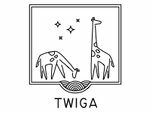Flood events in Kumasi, the second biggest and fastest growing city in Ghana, are becoming more frequent and severe due to changes in the climate and rapid urbanization growth. The natural flood plains are increasingly being used for urban construction. Increasing population also brings along more solid (plastic) waste on the streets and into the riverways. This in turn reduces the capacity for water drainage which causes flooding problems. The problems are exemplary of those in many fast-growing cities in the Global South.

Courtesy: Frank Annor
Working closely with Kumasi-based company Farmerline, FutureWater and HiView assisted in training for mapping of urban flood extents and magnitudes with the use of flying sensors (UAVs or drones equipped with special sensors). This can help to develop early-warning services for flooding situations and to validate hydrological modelling efforts that serve to identify bottlenecks in the system that cause urban flooding, eventually reducing the occurrence of such events.

But flying sensors need validation on the ground. Therefore, two mobile phone applications were developed using the open ODK platform: a Flood Survey app and a Plastic Mapping app.
The mobile applications consist of a list of questions, recording of the geolocation of the measurement and a photograph taken with the smartphone. The mobile apps were tested with the help of citizens in Kumasi. They all had a smartphone with internet access and GPS and were trained in the use of the app to collect observations from a certain area or structure in the study area. Thus occurrence of flooding and accumulation of plastic waste can be analysed.
The information collected with the mobile apps and terrain elevations collected with flying sensors is currently used to develop a hydrological model of the main river in Kumasi. The aim of the model is to identify critical water levels that warrant issuing of flood warnings and bottlenecks in the river system caused by (plastic) waste that need to be cleaned up for flood prevention.
Written by: Marie-Claire ten Veldhuis

